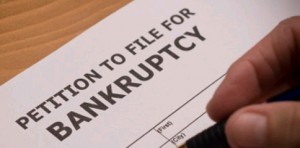Los Angeles Asbestos Court Demands Bankruptcy Trust Transparency
April 13, 2015
News and Views on Environmental & Toxic Tort Federal and State Legal Issues and Developments
April 13, 2015
As previously reported, Judge Elias in Los Angeles had indicated an intention to bring to conclusion a long standing discussion with counsel regarding the extent of disclosure regarding asbestos bankruptcy trusts that plaintiffs will be obliged to provide when responding to “General Order” discovery requests for all asbestos cases in Los Angeles. Despite receiving supplemental papers from the plaintiff bar urging her to alter her position, Judge Elias has now issued a formal order regarding such discovery. It varies little from the proposed order Judge Elias floated previously, and might be the first order requiring a signed authorization from plaintiff for the release of claims submitted to bankruptcy trusts.

The order was entered retroactively and made applicable to all cases filed on or after February 1, 15, 2015. Though it is to remain in force for a “trial period” of 6 months, it will stay in effect thereafter “unless amended, vacated or otherwise superseded by further order.” Therefore, as of now, the standard discovery in Los Angeles will include:
1. An authorization from plaintiff for release of claimant information submitted to an asbestos bankruptcy trust.
2. Additional interrogatories included within the “standard” discovery. The existing discovery included 4 questions regarding claims to bankruptcy trusts. These are now augmented by 6 more questions requiring extensive information regarding exposure to the products of, or on the premises of, dozens of identified trusts. Further the new order requires that such responses be updated not later than 5 days before trial, regardless of whether a claim has been made or will be made to such bankrupt entity.
3. The order broadly requires the disclosure of claims and any other communications with all trusts. In particular, the court finds “all documents sent to, received from, shown to, exchanged with, or otherwise disclosed to any established or pending asbestos trust funds — for any purpose” to be discoverable, and requires that “Plaintiffs shall produce” all such materials.
4. The documents that must be produced further includes “ballots, questionnaires, submitted or filed forms, summaries, claims, ‘placeholder’ claims, request for extensions, requests for deferrals, all supporting documentation, all related communications, and all documents filed … pursuant to Rule 2019 of the Federal Rules of Bankruptcy Procedure.” This order is meant to require production of some of the required and verified disclosures that must be made by any “groups, committees and entities” that represent “multiple creditors” in a Ch. 9 or 11 proceeding. In past asbestos-related bankruptcies, these filings were not generally accessible to the public as they would be in a normal bankruptcy. Garlock had made attempts to obtain such documents, but the bankruptcy courts rejected those attempts. Judge Elias’ order specifically ordering the production of these may be the first discovery order to specifically mention Rule 2019 disclosures in this context.
5. The court also requires production of signed affidavits or declarations that “have been circulated to someone other than plaintiff and plaintiff’s counsel” as they are not privileged. Thus any declaration sent to a trust must be disclosed.
No doubt the plaintiffs’ bar is considering its possible responses. Defense counsel in other jurisdictions in California are already seeking ways to expand upon this. In particular, the presiding asbestos judges in San Francisco and Alameda Counties will be urged to implement similar orders.